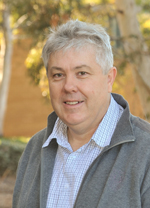 A Charles Sturt University (CSU) academic specialising in the welfare of children and young people has welcomed government recognition of the need to address youth mental health issues.
A Charles Sturt University (CSU) academic specialising in the welfare of children and young people has welcomed government recognition of the need to address youth mental health issues.Mr Neil Barber, a lecturer with the School of Humanities and Social Sciences at CSU in Wagga Wagga believes the focus should be on preventing mental health problems, particularly when associated with alcohol and drug abuse.
The Council of Australian Governments (COAG) has recently agreed to develop a National Partnership to move Australia’s mental health system away from crisis-driven activity towards prevention, early intervention and care in the community.
COAG has also noted the importance of attending to the needs of young and Indigenous Australians.
“The statistical data collated from state and federal health bodies on self harm and suicide alone has for some time reported not only high levels of incidence in rural areas, but with only odd exceptions, generally an upward trend in rural areas,” Mr Barber said.
He said the recent COAG forum on mental health has provided some ongoing certainty about funding of early intervention mental health services for young people, especially through the headspace program.
“The challenge is how these services which have adopted an increasing clinical intervention focus ensure they don’t lose sight of their other funding mandates concerned with seamless and integrated youth service delivery.”
Mr Barber said this is critical in rural areas where there are few youth-specific services and limited generic health and social services.
“This can pose barriers to service access for young people and limit the effectiveness of services in meeting the different needs that make a young person more vulnerable to alcohol and drug abuse and or mental health issues,” he said.
“These include personal relationship issues that arise within family, peer, work or school environments. Housing and transport issues can become critical, especially if you live in small rural centres where the only support services are likely to be the same ones your parents, grandparents and neighbours use.”
“Importantly the mental health of rural young people should not totally revolve around counselling and psycho-medical treatment. Normalisation of the usual challenges of youth including boredom, loneliness and a level of anxiety are important as well the support of peer groups, parents, teachers, sports coaches and others who work with them on a day to day basis,” Mr Barber said.
The proposed National Partnership will be considered by COAG before the end of 2011.





Social
Explore the world of social